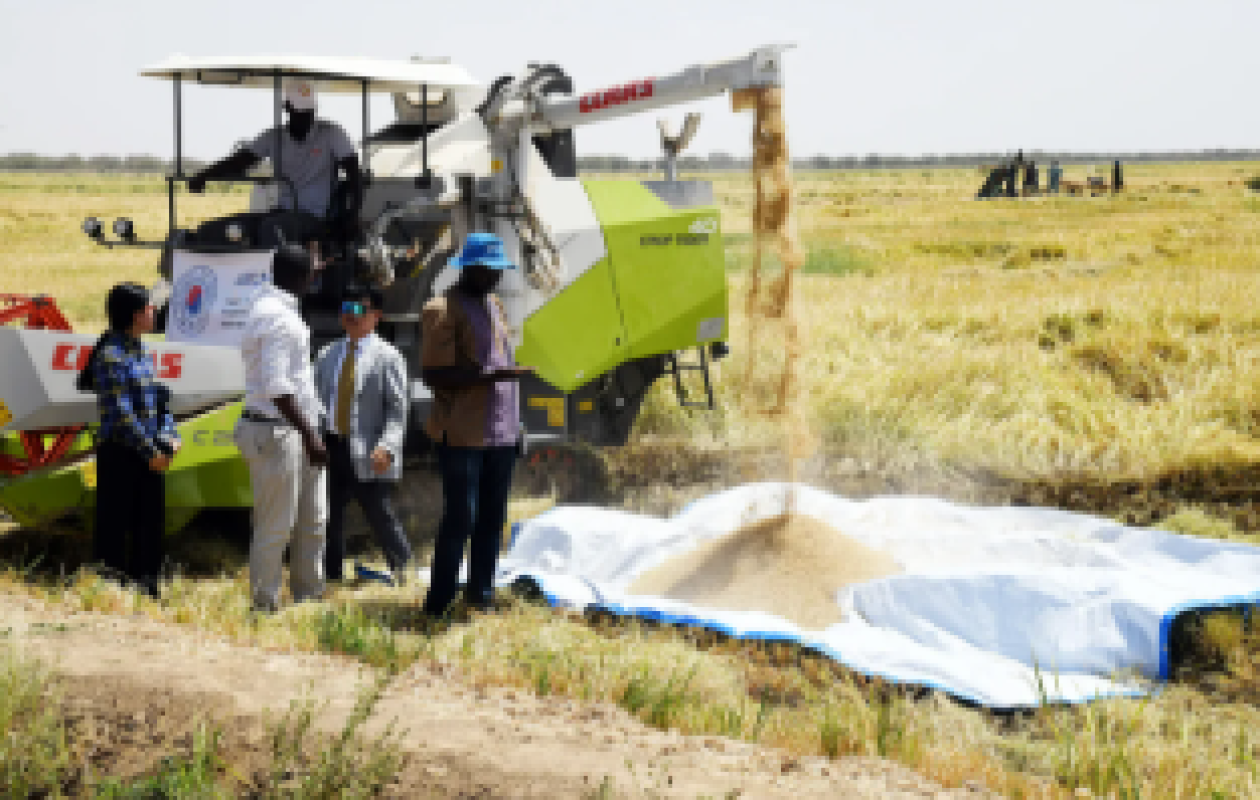
Agriculture : La mécanisation au cœur de la quête d’autosuffisance en riz
Meeting in Saint-Louis on Wednesday, October 29, 2025, stakeholders in the Senegal River Valley Irrigated Rice Production Project (PPRI VFS) discussed the national agricultural mechanization strategy. Led by SAED with support from JICA, this project aims to strengthen Senegal's food sovereignty through sustainable and efficient rice production management.
This project, implemented by the Delta Land Development and Exploitation Company (SAED) with the support of the Japan International Cooperation Agency (JICA), is part of the national dynamic of rice intensification and food sovereignty advocated by the government.
The meeting brought together all public and private stakeholders in the rice sector to strengthen synergy of action, harmonize the implementation of mechanization and define a sustainable model for managing agricultural equipment.
According to Amath Sow, coordinator of the PPRI VFS management unit, this workshop is the culmination of a long period of fieldwork. "It is to discuss and share with producers the mechanization strategy that we plan to implement, while taking into account their suggestions to avoid duplication and harmonize our actions," he explained.
The coordinator emphasized the importance of a participatory approach. "It is essential to integrate the concerns of producers to achieve more comprehensive and effective management of the sector," he added.
A step towards food sovereignty
One of the project's main objectives is to support the policy of rice self-sufficiency, a major challenge for the new regime. For Amath Sow, this ambition is entirely achievable, provided there is developed land, good water availability, and sufficient financial resources.
The PPRI VFS thus provides for the rehabilitation of 9,000 ha, which should allow an estimated annual production of 101,250 t of paddy. "We must also ensure double cropping, allowing producers to cultivate all year round thanks to quality infrastructure and efficient irrigation," he insisted.
To improve efficiency, the project plans to install lined canals to reduce water losses observed in older earthen systems. "We will also install solar panels at the pumping stations to lower energy costs, one of the main obstacles to the profitability of producers," Mr. Sow explained.
He believes that this reduction in energy costs will allow rice farmers to achieve a better profit margin and strengthen the economic viability of their farms.
Towards better-controlled mechanization
For Ibrahima Sall, program manager for community agricultural cooperatives, this new approach marks a break with past practices. "In the past, tractors were made available to producers without support or training. As a result, breakdowns were frequent and the equipment was often unused," he recalled.
From now on, the focus will be on a comprehensive, tailored mechanization strategy based on a precise needs assessment and capacity building for producers. "We want to learn from the past and build a sustainable model that promotes both productivity and equipment preservation," he emphasized.
According to him, initial experiments already show a clear increase in production, but this must absolutely be accompanied by adequate storage capacity to avoid post-harvest losses.
Thus, mechanization appears as an essential lever in Senegal's march towards rice self-sufficiency, provided that training, maintenance and sustainability are placed at the heart of the system.
Commentaires (1)
Une ferme moderne, c’est une équipe formée + un bon Agriwise ERP.
Participer à la Discussion
Règles de la communauté :
💡 Astuce : Utilisez des emojis depuis votre téléphone ou le module emoji ci-dessous. Cliquez sur GIF pour ajouter un GIF animé. Collez un lien X/Twitter, TikTok ou Instagram pour l'afficher automatiquement.